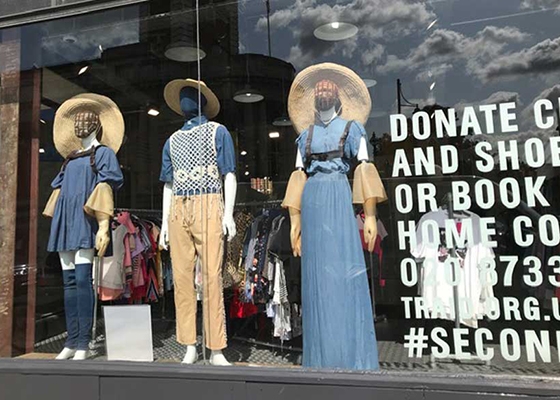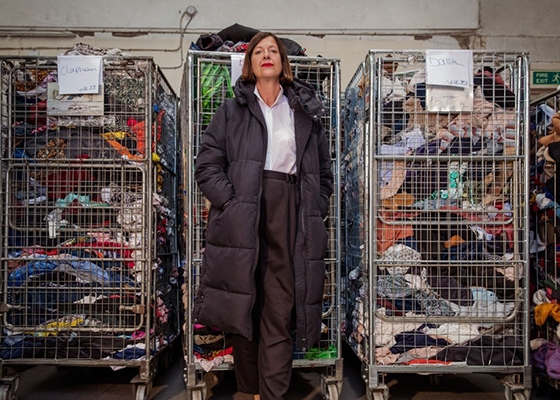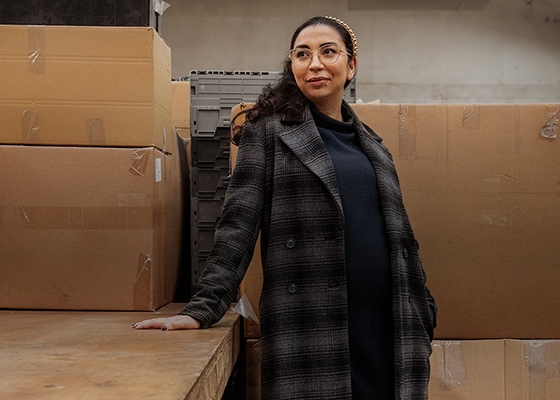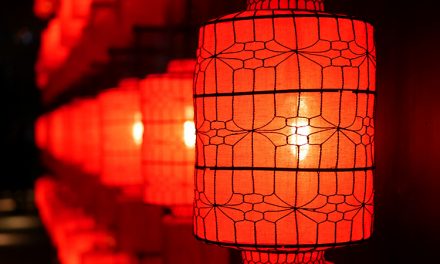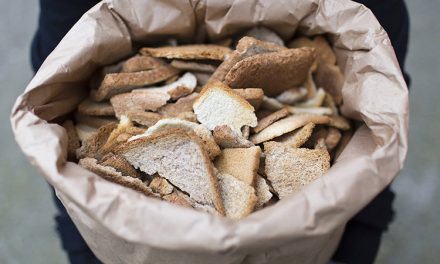Fashion Crush: Thought Co-Founder Rachel Kelly
All Images: Thought
Cirularity could be the key to lessening our impact on the environment. One company pursuing circularity through investment and partnerships is UK brand Thought.
By now many of us have some understanding of the real life cycle of our clothes. The concept of throwing something ‘away’ is now problematic to say the least. For their part, many fashion companies are attempting to help customers with this issue, albeit, while facilitating the purchase of more items replacing the ones they have just disposed of. Circularity is the new buzz word in sustainable fashion, but is just another greenwashing tactic? According to a recent Fashionscapes film by Eco Age, the majority of circular claims made by fashion brands are mostly hot air. In contrast, Thought have been proudly sustainable for 20 years, so they know a thing or two about trendy marketing pledges. When they decided to invest in circularity, they wanted to make the move a sincere and effective one.
Can I smoke Your Shirt?
Rachel Kelly is the Co-Founder of Thought, who together with her husband John, has worked hard to create a responsible and transparent clothing brand. The company began when the pair wanted to bring their Hemp shirts for men to the UK from their native Australia. Driven by a love of natural fibres, they pushed past the stereotypical ‘hippy fashion’ label they were initially given by consumers to become what Thought is today. Speaking to me via Zoom, Rachel relayed the origin story of Thought. She agrees that the reputation of ‘sustainable fashion’ has changed dramatically in the 20 years they have been going. However early on, they recognised that while their passion was in sustainability, the products they created had to be desirable too.
“We are first and foremost a competitive brand,” she told me. “Our clothes fit well and are beautiful. Then behind the scenes we lead the way in sustainable materials and improving our supply chain so we can operate in more conscious ways.” This attention to wearability, whilst operating responsibly has meant that when the world was ready for them, Thought were the perfectly developed label for style and eco conscious shoppers.
Why Circulatory Matters
While natural and recycled fabrics are nice to have in their collections, circularity is high on Thought’s agenda. “Circularity is the next big phase of sustainability,” Rachel agrees. “We think about where everything comes from as well as our supply chains and the end garment. However research shows that the biggest impact is made post purchase.” Thought have always advocated for their customers to love their clothes longer with their ‘Wear and Care’ ideas on the website. However, they wanted to find a way to do more.
Do you work in sustainability?
The WIP is our new digital platform for eco aware brand founders, entrepreneurs and side hustlers. It's a place to find community as well as learning resources. Launching this Winter, you can sign up for updates below.
As part of this drive, in September 2021, they proudly introduced a new permanent partnership with Traid. The UK based charity is working to clean up fashion, as well as educate consumers as to the truth behind their clothes life cycle. They collect and resell clothes from charity shops on the High Street, as well as via partnerships with Ebay and Depop. Since 1999, they have diverted 170,000,000 garments from landfill by collecting, reusing and re-selling them instead. For their partnership with Thought, the ‘Recycle, Repurpose, Reimagine’ campaign seeks to further educate consumers as to what happens to their clothes. They will also collect unwanted clothes from customers for free to give them a new life.
Environmental Benefits of Circularity
The environmental benefits of extending the lifecycle of our clothing can be huge. Over production is in danger of swallowing us up. Around 100 billion garments are created every year. According to Thought, 10 garments reused saves around 25 kilos of carbon emissions and 4,000 litres of water through not creating more new clothing. Keeping clothes in circulation also means that less goes to landfill, or ends up in our oceans or breaking the backs (literally) of Kayayei (female porters in garment markets in Accra who carry bales of used clothing on their heads.) The human toll of fashion’s excess is upsetting, and wholly preventable, when we take a moment to consider how much we purchase, and what we do with our clothes when we are finished with them.
The partnership is a deliberate step by Thought to take responsibility for what they produce and sell. Rachel is excited for this development for Thought. “Prior to Traid we encouraged customers to do clothes swaps and donate to charity. This is the next step of that journey for us.” Thought customers will receive a free returns label with their purchase, encouraging them to donate unwanted clothes directly to Traid. The partnership hopes to open up conversations around recycling and repurposing post consumer goods, as well as the important work that Traid does through it’s donation programme.
Investing In Circularity
Thought are very excited and proud of this step towards circularity for their customers. “Its the first step for us in offering circularity to the end customer to that we can help them responsibly dispose of their products,” Rachel told me. It’s no longer enough to simply encourage people to keep things for longer and resell or recycle them, because as Thought know well, there is no guarantee this will happen. Rachel says they are not shying away from this investment, “We are now on a path to increase circularity. It’s an investment of cash, we are funding the facilitation of this, we have a commitment to the project so we are investing in it.” For a small company, this is no mean feat.
Whilst Thought hope to make a positive physical impact, they are also aiming to shift customer perceptions. “Knowledge is power,” Rachel agrees. “It’s about understanding the impact that our choices have. We are so removed from the conception of things that we don’t have an idea of the impact of our decisions.” Through market research and customer surveys’ Rachel and her team know that Thought’s customer wants to make better choices, and this partnership with Traid is a new way for them to facilitate this. “We hope that we are doing our bit towards sharing information with our customer, who knows that small steps make the difference. We need a shift in consciousness so people can understand why circularity matters.”
In addition to this partnership, Thought are working to use more recycled fibres in their collections, in an effort to extend circularity throughout the business. This is also a thoughtful and deliberate process. “We have worked with recycled fibers for quite a while and we are continuing the investigation of that,” Rachel told me. “There is a discussion around working with recycled fibres, specifically [plastic] micro fibres, and whether we should be working with virgin organic yarns instead.” Thought were the first brand in the UK to stock Guppy Friend washing bags on their website, encouraging customers to minimise plastic micro fibre shedding when they wash recycled polyester clothes.
For this reason, Rachel tells me that Thought prefer to use recycled fibres in long lasting items like underwear or coats like the Elisha Recycled Puffa Coat. Timeless and high quality design is an important aspect of circularity. Rachel is keen to be transparent about how and why they use recycled fibres, admitting that it’s not the perfect answer to a complicated question of recycling and repurposing. “We don’t get everything right and we don’t pretend we do, however we are genuinely trying to be responsible and do the right thing.”
“We’ve looked at the big numbers, and put our money where our mouth is. [Thought] are demonstrating that it’s possible to implement these programmes. We want people to buy less and buy better. It’s been part of our messaging since 2016, we don’t stack them high, sell them low. Thats our ethos.”
With thanks to Harriet Field
Did This Put A Smile On Your Face? Why Not Subscribe?
If you enjoyed this then theres plenty more on our email newsletters that you'll love. Whether you're a sustainable newbie or an eco conscious pro, our bi monthly emails will inspire you to live sustainably and ethically.



